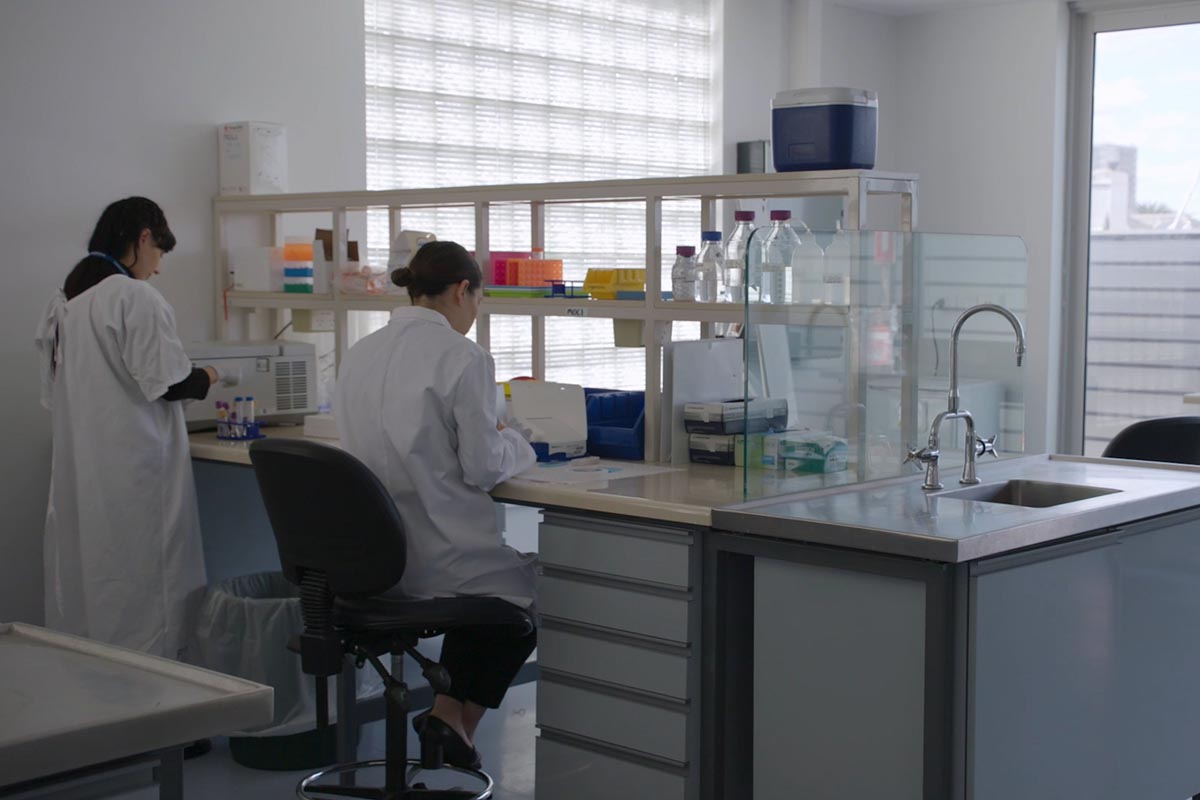Research and clinical trials lead to advances in medicine. They help researchers to find better treatments and ways to improve your overall patient experience. Sometimes, a clinical trial is the only way to access a new treatment option, years before it is available to the public.
At Epworth, innovation is in our DNA. We performed the first robot assisted radical prostatectomy in Australia and continue to excel in prostate cancer surgery. We are proud to offer our prostate cancer patients every chance to access the latest developments. You have support from us at every step, in person and through telehealth for regional and interstate patients.
Taking part in a clinical trial, study or registry is voluntary and always your choice.
-
What is a clinical trial for prostate cancer?
A clinical trial tests how safe and effective an intervention is. In medical terms, an intervention is something prescribed with the aim to improve health, such as a treatment or drug. It may also be a surgical method or exercise program.
Clinical trials also test existing treatments for different diseases or in different doses. They compare the new intervention with existing options.
-
What is a research study for prostate cancer?
A research study aims to answer important questions to improve prostate cancer care, including prevention, screening, diagnosis or patient experience. .
Research studies are observational, rather than interventional like clinical trials. This means you don’t receive a treatment. Instead, a research study may ask you questions about your experiences, feelings or treatment side effects.
-
How can I join a trial or study?
You can browse our active projects below or speak with the team to find out more. We welcome questions from you or your treating doctor on 03 9483 6035 or [email protected]
Active prostate cancer trials and research at Epworth
Listing updated: 3 August 2023
1. EMPOWER
In the EMPOWER project, we aim to improve communication and patient education by analysing the effect of distributing structured and patient oriented radiology reports. Structured reports will have clear headings and summaries directed specifically at answering clinical questions from referrers. Patient oriented reports will be transcribed in lay language with anatomical diagrams to improve patient understanding of their disease.
These specifically designed reports will be compared against standard, unstructured free text reports. Questionnaires will be sent to referring specialists, and patients to evaluate their satisfaction and comprehension of the reports. The answers will then be analysed to determine which type of report is more effective.
Inclusion: Patients >18 years old receiving radiologic scan for prostate cancer staging.
Principal Investigator: Prof Nathan Lawrentschuk
2. CONFIRM
The Diagnostic Utility of PSMA PET/CT in Men with Newly Diagnosed Low-Grade Prostate Cancer with High-Risk Features, on Active Surveillance, Awaiting Confirmatory Biopsy
Stage: Low grade prostate cancer
Inclusion:
- GG2 Pca: amount of pattern 4 is <10%
- GG1 (high volume)
- GG1 (low volume but high PSA)
- GG1: PIRADS 4 or 5 lesion on the MRI
Principal Investigator: Prof Nathan Lawrentschuk
3. PRIMORDIUM
PRIMORDIUM is a Randomized, Controlled, Multicenter, Open-label Study to Investigate the Efficacy and Safety of Adding Apalutamide to Radiotherapy and LHRH Agonist in High-Risk Patients with PSMA-PET-Positive Hormone-Sensitive Prostate Cancer, with an Observational Follow-up of PSMA-PET Negative Patients.
We aim to determine if the addition of apalutamide to RT+LHRHa delays metastatic progression as assessed by PSMA-PET or death compared with RT+LHRHa alone.
Stage: High risk prostate cancer
Inclusion: mandatory prior treatments: RP, LND; PSMA PET scan required at screeningcancer
Exclusion:
- already received treatment for BCR
- prior treatments: ADT, CYP17 inhibitors, AR antagonists.
Principal Investigator: A/Prof Arun Azad
These studies are currently open for recruitment. For trial enquiries, contact:
- Email [email protected]
- Phone 03 9483 6035

